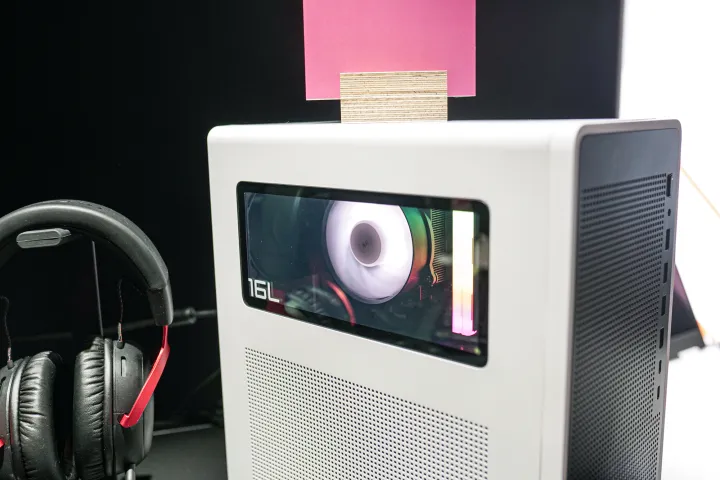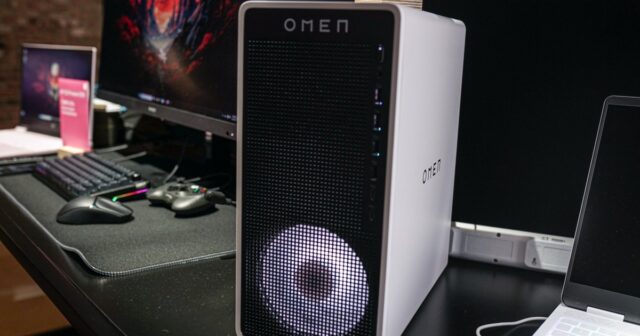Outside of dedicated mini PCs like the ROG NUC 970, we don’t see a lot of small form factor (SFF) desktops from mainstream brands. But HP has an exciting SFF option on its hands for CES 2025. It’s the Omen 16L, which is the smallest gaming desktop HP has ever made, and it can pack a decent punch with graphics card options up to an RTX 4060 Ti or RX 7600. I’m just scratching my head at the processor options.
Like most Omen desktops, you have a lot of spec options with the Omen 16L. In terms of Intel, you can stick with the last-gen Core i5-14400 or Core i7-14700, or you can go with Intel’s newer Arrow Lake offerings — either the Core Ultra 7 265 or Core Ultra 5 225. It’s the AMD options that are really strange, though. If you go with Team Red, you’re stuck with either a Ryzen 5 8500G or Ryzen 7 8700G. HP is also offering the F-series versions of these processors, which lack integrated graphics.
I’d forgive you for forgetting that Ryzen 8000 processors even exist. AMD didn’t make a big fuss about this series, and that’s because Ryzen 8000 chips are based on the same Zen 4 architecture and designs as Ryzen 7000 CPUs. However, these processors come with beefier integrated graphics. They’re part of AMD’s long-running line of APUs, which are designed to provide serviceable integrated graphics to PC gamers on a tight budget.
Get your weekly teardown of the tech behind PC gaming
If you fall in that bucket, AMD’s Ryzen 8000 CPUs are decent options. They just don’t make a lot of sense in the Omen 16L.

Although Ryzen 8000 chips carry similar specs to their Ryzen 7000 counterparts, they’re a bit slower based on my testing. That’s because AMD is cramming a large graphics chip onto an already large CPU. For the Omen 16L, it would likely be faster with Ryzen 7000 offerings. I haven’t tested the desktop myself, but that’s my best guess. Cynical as this perspective may be, it looks like HP might just want a higher number on its spec list.
Outside of the CPU, you have a few more options. As mentioned, you can pack in up to an RTX 4060 Ti or RX 7600, but HP is also offering configurations with the RTX 4060 and RTX 3050 — the latter of which is available with 6GB or 8GB of VRAM. You can also pack in up to 2TB of storage on a single SSD.
Memory is another strange point for the Omen 16L. HP offers 8GB, 16GB, or 32GB. I wouldn’t recommend 8GB to PC gamers in 2025 regardless, but the 16GB configuration only uses a single stick. That effectively cuts the bandwidth in half, as a single stick of 16GB memory isn’t able to run in a dual-channel configuration without a second stick.
HP certainly made some interesting choices with the Omen 16L, across both the AMD processor options and the memory configurations. Still, the 16L is an attractive, compact gaming PC. Let’s hope it can hold up in the performance department.















































